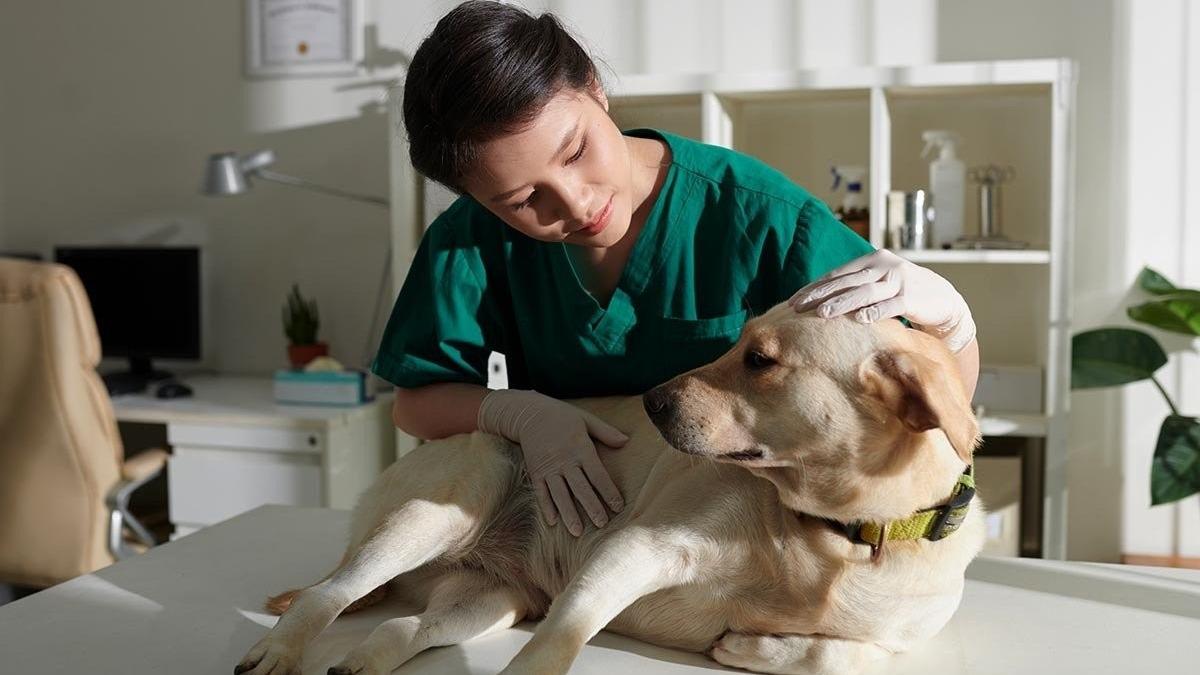Since 2019, the number of insured pets in the U.S. has increased from less than 3 million to more than 5 million. More pet owners are feeling the sting of rising veterinary care costs and want to ensure they have adequate funds when their pet is sick or injured. Pet insurance is a tool to help ensure the future health of your pet that makes financial sense for young dogs and cats. But, is a policy valuable for an older pet? The answer is more complex.
Spot Pet Insurance never denies coverage based on a pet’s senior age, but a senior pet plan should be considered carefully. We want to ensure all pets get the coverage they need without undue financial stress on pet parents, so we’ve compiled this guide to help you determine when a policy for your older pet is worthwhile.
What are the Challenges of Caring for an Old Dog?
Age alone is not a disease. However, older pets are more likely than young pets to get sick or suffer from chronic conditions. Veterinary care costs can increase as your pet ages, develops health concerns, and needs more specialized care. Some diseases older pets develop that may strain your monthly budget include:
Arthritis
Dental disease
Kidney disease
Endocrine disorders
Obesity
Cognitive decline
Of course, caring for an older pet has plenty of benefits. Pets provide love, companionship, purpose, and many other physical and emotional benefits, so they deserve pampering during their golden years. A pet insurance policy can be a great way to support your furry pal.
Pros of Pet Insurance for Old Dogs
Here are some of the positive aspects of insuring an older pet.
Financial relief
Senior pets age quickly, and medical problems can pop up fast. Pet insurance can help cover the high costs of treating new issues like cancer, diabetes, or recurrent infections, which can easily reach thousands of dollars.
Access to better care
If your pet develops a complex health condition, pet insurance can help you choose treatments based on your furry pal’s needs rather than the expected bill. With a pet health policy, you can afford that specialist visit, rehabilitation, or surgery.
Peace of mind
Watching a pet grow older and not knowing what could go wrong with their health is stressful. Pet insurance helps provide a financial safety net, so you have peace of mind, with one less thing to worry about.
Cons of Pet Insurance for Old Dogs
Despite the potential benefits of pet health insurance, you should also consider the possible downsides.
Pre-existing conditions
Most pet insurance providers exclude pre-existing conditions from coverage unless they are deemed temporary and curable. A pre-existing condition is any symptom or diagnosis that appeared before you enrolled your pet or during a waiting period. The older your pet when they are enrolled, the more likely they will amass a long list of pre-existing conditions that limit your policy’s utility.
Higher premiums
Premiums increase as pet age rises, because senior pets are prone to getting sick more often. Lower coverage options, like a high deductible or low annual limit, can help offset premium costs in exchange for lower reimbursements.
Policy exclusions
In addition to pre-existing conditions, some policies have exclusions or limitations that affect a plan’s cost-to-benefit ratio for senior pets. Dental care, physical therapy, behavior treatments, and exam fees may fall in this category. Some pet insurance companies deny coverage completely for pets above a certain age, usually between 10 and 15 years old.
Is Pet Insurance for Older Dogs Worth It?
Whether pet insurance is worthwhile for your senior pet depends on many factors, particularly their health history and age at enrollment. In most cases, you can manipulate plan parameters to reduce premiums while keeping essential coverages. A high-deductible or low-reimbursement plan can be more affordable and protect you from the high costs of unforeseen pet illnesses.
Conclusion
Pet insurance can benefit pets of all ages, but has pros and cons for senior pets. A health plan for your older pet can help provide peace of mind and financial security, but can be pricey or bogged down with pre-existing condition exclusions. Spot Pet Insurance is highly customizable and never limits coverage based on upper age, so you can find a plan that works for your budget. Use our online quote tool to create a custom plan, evaluate plan costs, and determine if pet insurance is right for your furry pal.

Elizabeth Kowalski holds a bachelor’s degree in biology from the University of Illinois and an associate’s degree in veterinary technology from Purdue University. After more than 10 years working as a certified veterinary technician, she chose to pursue veterinary writing, combining years of practical knowledge with a talent and passion for the written word. Elizabeth enjoys creating content for pet owners and veterinary professionals alike, and spends her free time playing sand volleyball and lounging at home with her pitbull, Piglet, and husband, Brenton.

Angela Beal is a veterinarian who loves using her writing to help pet owners provide the best possible care for their furry companions. Since 2020, she has worked full-time with Rumpus Writing and Editing, a veterinary-specific writing and editing company .Learn more at rumpuswriting.com.











